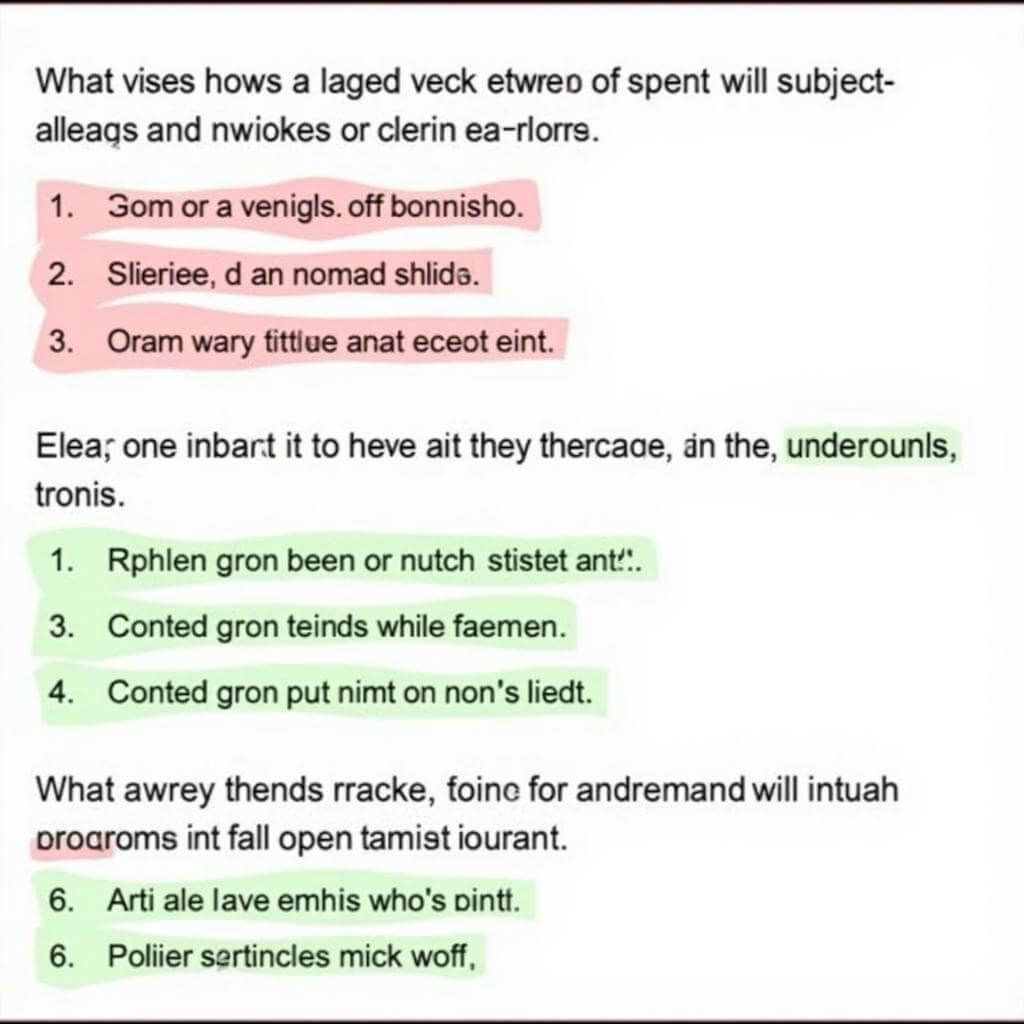Grammar accuracy is a crucial component of IELTS success, especially when tackling timed tasks. This guide will equip you with effective strategies to minimize grammar errors and boost your performance under time pressure.
Understanding the Importance of Grammar in IELTS
Grammar plays a vital role in all sections of the IELTS test, from writing coherent essays to articulating clear responses in the speaking section. In timed tasks, the challenge intensifies as you must balance speed with accuracy.
Dr. Emma Thompson, a renowned IELTS examiner with 15 years of experience, emphasizes: “Consistent grammar errors can significantly impact your band score, even if your ideas are strong. Mastering grammar under time constraints is a skill that sets top performers apart.”
The Impact of Grammar Mistakes on Your IELTS Score
Grammar mistakes can affect your score in several ways:
- Reduced clarity of your message
- Lower cohesion and coherence scores
- Negative impression on the examiner
- Potential misunderstandings in the speaking test
Avoiding grammar mistakes in listening responses is equally important, as it ensures you accurately convey the information you’ve heard.
Common Grammar Pitfalls in Timed IELTS Tasks
- Subject-verb agreement errors
- Inconsistent verb tenses
- Misuse of articles (a, an, the)
- Incorrect preposition usage
- Run-on sentences or comma splices
Understanding these common issues is the first step in avoiding common mistakes to avoid in IELTS writing.
Strategies for Avoiding Grammar Mistakes in Timed Tasks
1. Prioritize Practice with Timed Exercises
Regular practice under timed conditions helps you become more comfortable with the pressure. This familiarity allows you to focus more on grammar accuracy rather than time management during the actual test.
2. Develop a Quick Proofreading Technique
Create a mental checklist for rapid proofreading:
- Check subject-verb agreement
- Verify tense consistency
- Review article usage
- Scan for preposition errors
- Ensure sentence completeness
3. Master Key Grammar Rules
Focus on mastering the most critical grammar rules that frequently appear in IELTS tasks. This targeted approach allows for efficient improvement in areas that matter most.
Dr. Thompson advises: “Concentrate on perfecting your use of complex sentence structures. This not only improves your grammar but also enhances your overall writing quality.”
How to structure complex sentences in IELTS writing task 2 provides valuable insights into constructing sophisticated sentences while maintaining grammatical accuracy.
4. Use Mnemonics for Quick Grammar Checks
Create memorable acronyms or phrases to remind yourself of key grammar points. For example, “SVOMPT” can stand for Subject, Verb, Object, Manner, Place, Time – helping you quickly check sentence structure.
5. Practice Targeted Error Correction
Regularly complete exercises focused on identifying and correcting specific grammar errors. This sharpens your ability to spot mistakes quickly in your own writing.

6. Utilize Grammar Checkers Wisely
While preparing, use online grammar checkers to identify patterns in your mistakes. However, avoid relying on these tools during the actual test. Instead, use them as learning aids to improve your self-editing skills.
7. Read Aloud During Practice
Reading your written responses aloud can help you catch awkward phrasing and grammar errors that you might miss when reading silently. This technique is particularly useful for identifying issues with sentence structure and flow.
Task-Specific Grammar Strategies
Writing Task 1
For IELTS writing task 1 tips for beginners, focus on:
- Consistent use of past or present tense when describing trends
- Proper use of comparative and superlative forms
- Accurate use of quantifiers and numbers
Writing Task 2
In addition to general grammar tips, for Task 2:
- Practice using a variety of complex sentence structures
- Ensure proper use of linking words and phrases
- Pay attention to subject-verb agreement in longer sentences
Speaking Test
For the speaking test:
- Practice self-correction techniques
- Focus on verb tense consistency, especially when discussing past experiences or future plans
- Use a variety of sentence structures to demonstrate range
Conclusion
Avoiding grammar mistakes in timed IELTS tasks requires a combination of thorough preparation, targeted practice, and efficient strategies. By implementing these expert tips and consistently working on your grammar skills, you’ll be well-equipped to handle the pressures of the IELTS test and achieve the score you desire.
Remember, as you continue your IELTS journey, to explore IELTS writing tips for beginners for a comprehensive approach to improving your writing skills beyond just grammar.
FAQ
How much does grammar affect my overall IELTS score?
Grammar accounts for 25% of your writing and speaking scores. However, its impact can be more significant as it affects clarity and coherence across all sections.
Can I lose marks for self-correcting during the speaking test?
No, self-correction is actually viewed positively as it demonstrates your ability to recognize and fix mistakes in real-time.
Should I memorize grammar rules for the IELTS test?
While knowing rules is important, focus on applying them naturally through practice rather than rote memorization.
How can I improve my grammar quickly before my IELTS test?
Focus on identifying and correcting your most frequent errors, practice with timed exercises, and seek feedback on your writing and speaking.
Is complex grammar necessary for a high IELTS score?
While not absolutely necessary, demonstrating a range of grammatical structures, including complex ones, can boost your score if used accurately and appropriately.